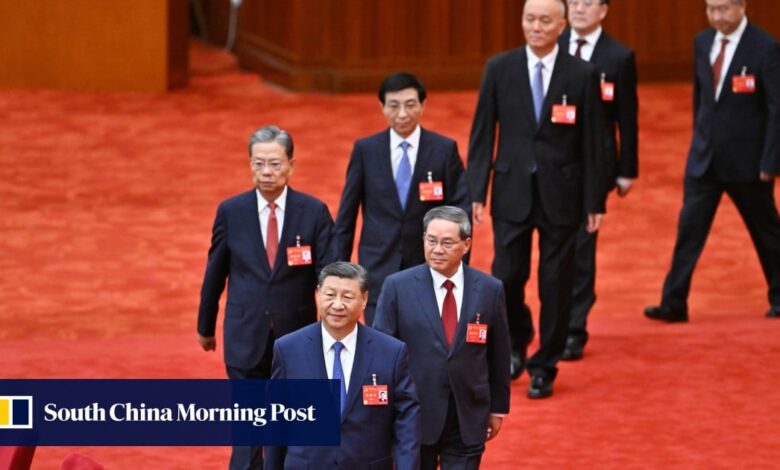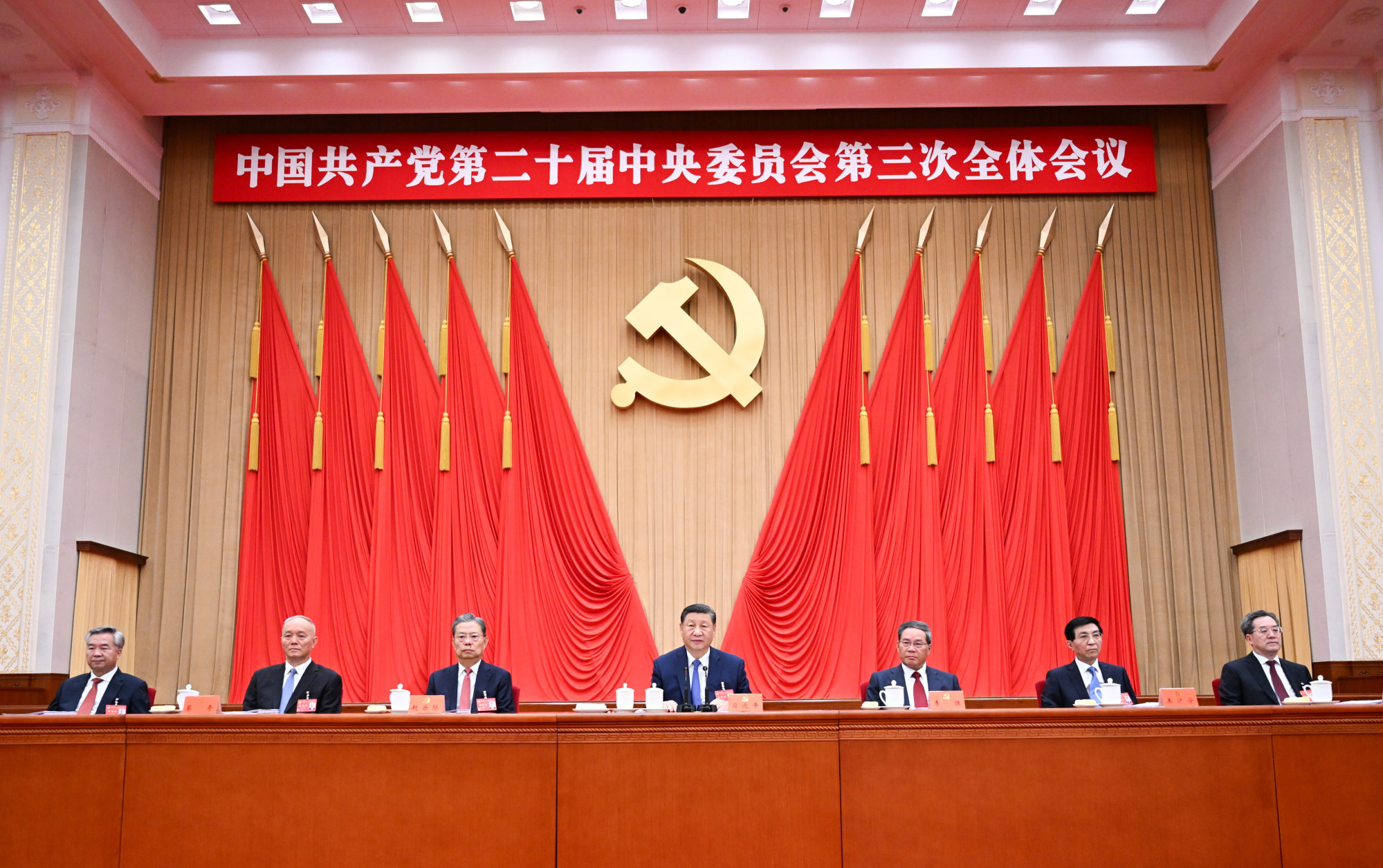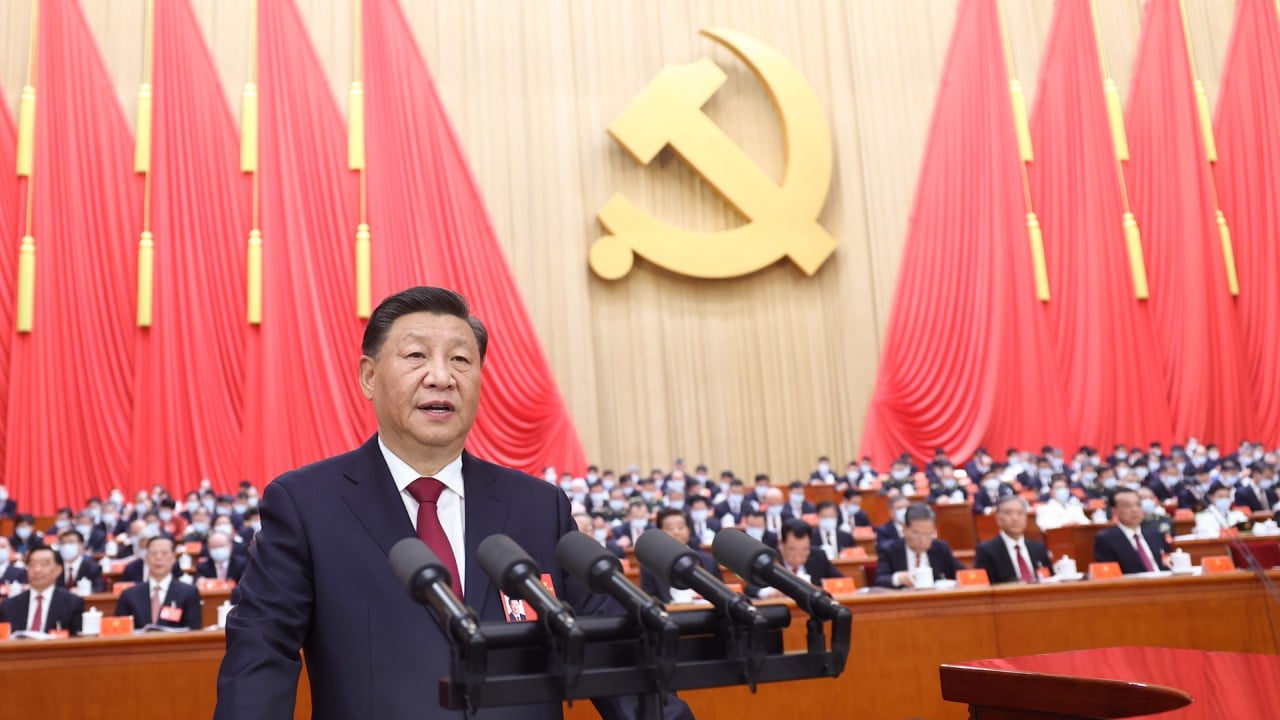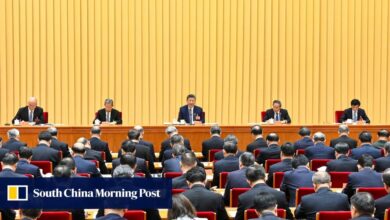China’s Communist Party sticks to painful reform playbook to target risks and growth

It was released at the end of the four-day session, known as the third plenum, an important event for the party elite to hammer out long-term strategies.
Some have hoped the party would announce drastic changes to jump-start the economy. Instead, the communique contained few surprises, reflecting the leadership’s assessment that China needs to finish painful economic restructuring rather than apply a quick fix.
Nevertheless, it did acknowledge the present difficulties.
In a rare departure from the tradition of focusing on long-term goals, the communique stressed that China must “unwaveringly strive to finish this year’s growth targets”.
The communique asked the party members to “faithfully follow the party leadership’s economic decisions, taking active steps to stimulate domestic consumption, and build new momentum to drive exports and imports”.
Lian Ping, director general of the China Chief Economist Forum, said the reference to this year’s growth targets was included in the communique deliberately as a rallying call.
“I believe this part will not appear in the full statement released later. The leadership wants to use the opportunity to address the disappointing performance in the second quarter [of this year],” he said.
Beijing-based consultancy Trivium China agreed the surprising mention of the short-term outlook in the communique pointed to “anxiety”.
“The leadership is clearly worried. That means we could see more aggressive policy interventions coming out from the Politburo meeting at the end of the month.”
The reference aside, most parts of the communique focused on the long term.
The committee vowed that China would continue to deepen reforms in all areas, including the economy, rural land, taxation, environmental protection, national security, fighting corruption, and cultural development.
The word “reform” appeared 53 times in the statement. Unlike the Western use of the word, which implies liberalisation, in today’s China, it means improving governance and increasing efficiency.
Lian said he was glad to see the communique address some long-overdue issues, such as tax reform.
“And it is crucial that it gives a clear deadline for all these reforms to be completed by 2029. That is refreshing compared with the previous third plenums,” he said.
“In the past, some reform measures were mentioned and then quietly shelved if they could not be achieved. This time, they seem more determined to get these done.”
We could see more aggressive policy interventions coming out from the Politburo meeting at the end of the month
The drive to speed up China’s science and technology development is central to the reforms, with the area seen as mission-critical to the nation’s economic transition.
The communique also called for the country to deepen supply-side reform, better integrate the digital economy into the real economy, upgrade modern infrastructure, and build resilience in its industrial supply chain.
It has identified improving human capital and talent as the foundation to achieve these goals.
“We must thoroughly and faithfully implement the strategy of rejuvenating the nation through science and education and strengthening our talent pools. Education and innovation must go hand in hand.”
On the economic front, it promised to “give better play to the role of the market” but curiously omitted the often-used phrase of the market being the decisive force in the economy. Instead, the communique stressed the need to maintain market order and correct market failures, reflecting Beijing’s concerns about risks in its financial system.
The need to control risk came as China faced “complex and fast-changing internal and external challenges”.
“We must implement the right measures to prevent and resolve risks in critical areas such as the property sector and local debt. We must ensure financial institutions strictly follow safety guidelines,” it said.
“The government must improve the monitoring and prevention of natural disasters, especially floods. We must build a social security network to maintain social stability effectively.”
It said China also needed to strengthen “the guidance of public opinion and prevent and defuse ideological risks” – a euphemism for media censorship.

Ultimately, the party sees the key of managing risks and maintaining stability in improving its overall governance.
It said the party must ensure absolute leadership over the military and carry out necessary reform to ensure the People’s Liberation Army could achieve its 100th anniversary goals – targets widely understood to mean reaching parity with the United States.
Xie Maosong, a senior researcher at the China Institute for Innovation and Development Strategy under the Chinese Academy of Sciences, described the communique as “firm but patient”.
“Xi said many times that the easy part of the reform is over, and now we are in uncharted waters. The party must watch its step, particularly as the external risks build. We are also touching the vested interests of many groups,” he said.
Larry Hu, chief China economist at Macquarie Capital, said the communique contained no surprises for the financial market.
“Rather than a concrete target, ‘Chinese modernisation’ is more of a prospect for successfully meeting the economic, social, environmental and geopolitical challenges that China will face in the years ahead,” Hu said in a research note.
“A signature ideology is extremely important to the party, but it’s not something the market can trade on.”
Source link




